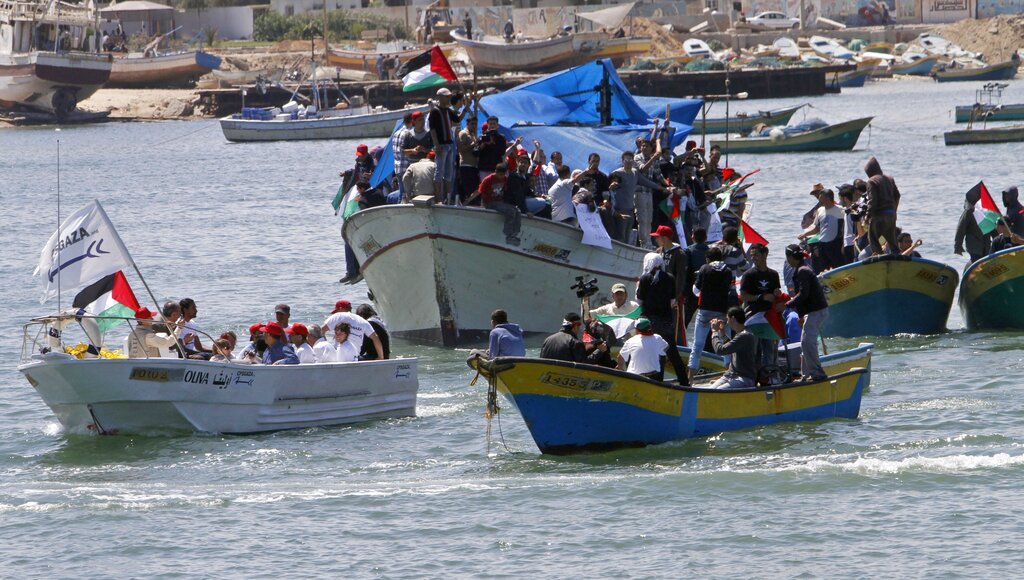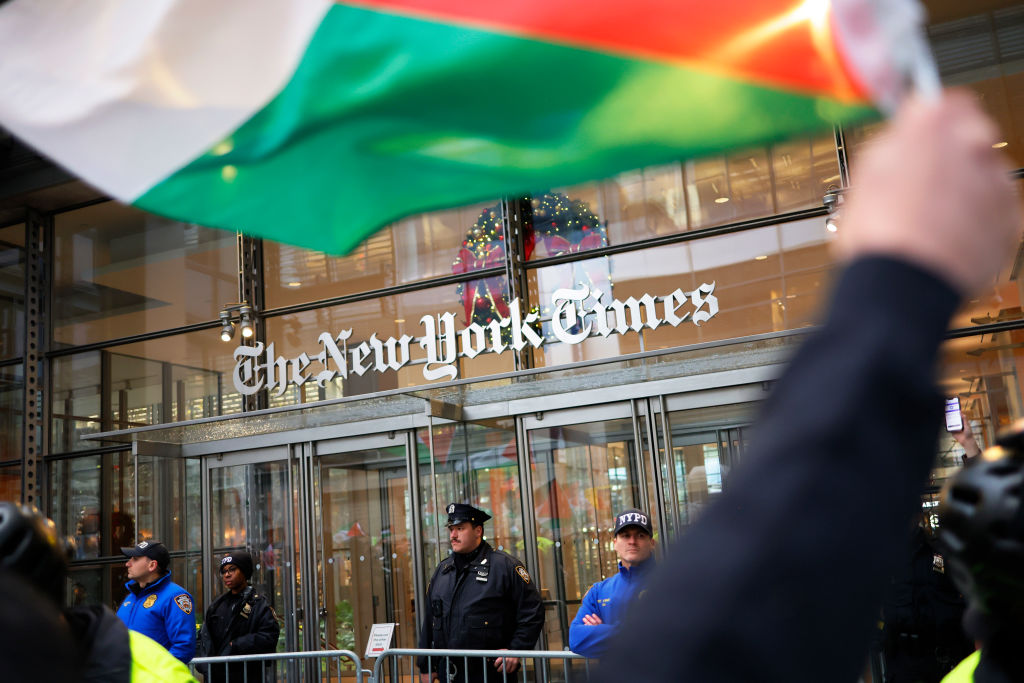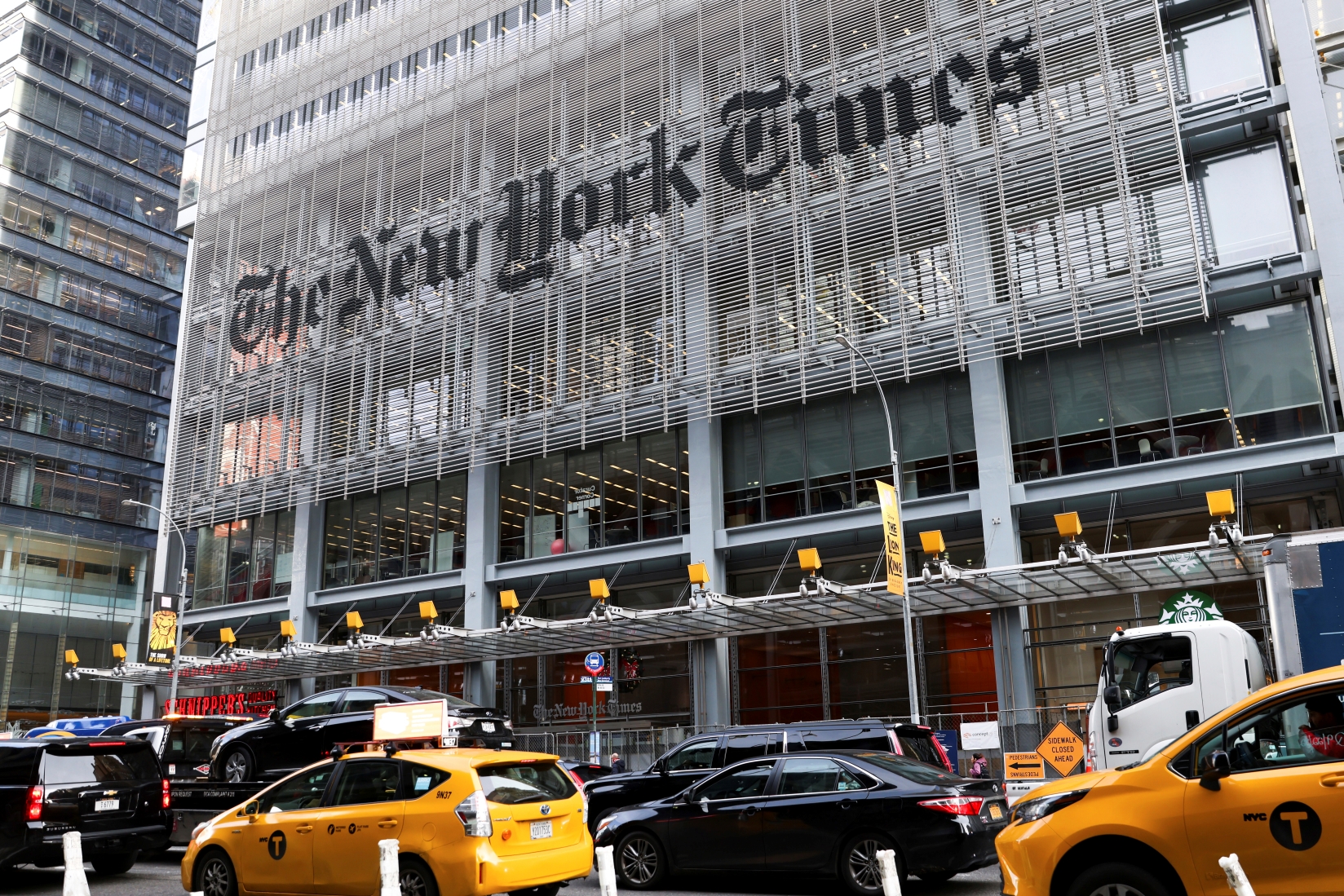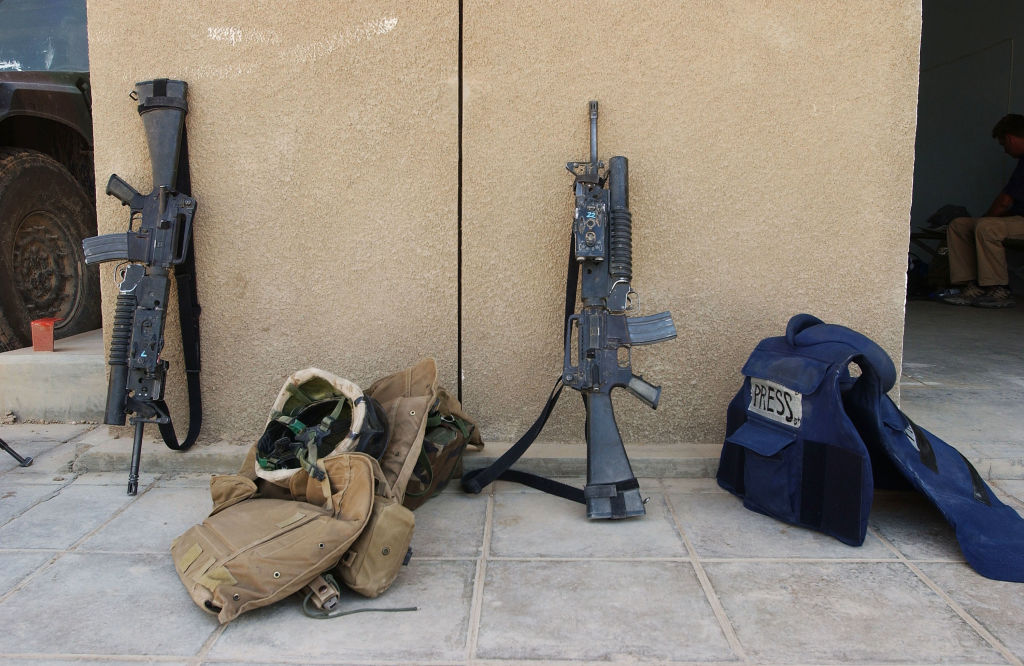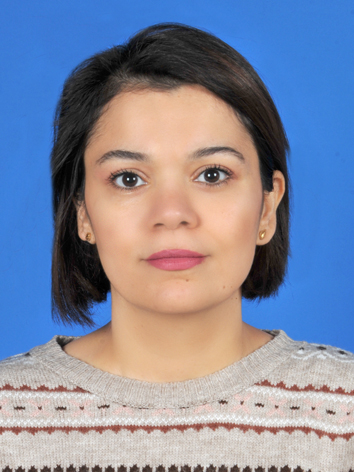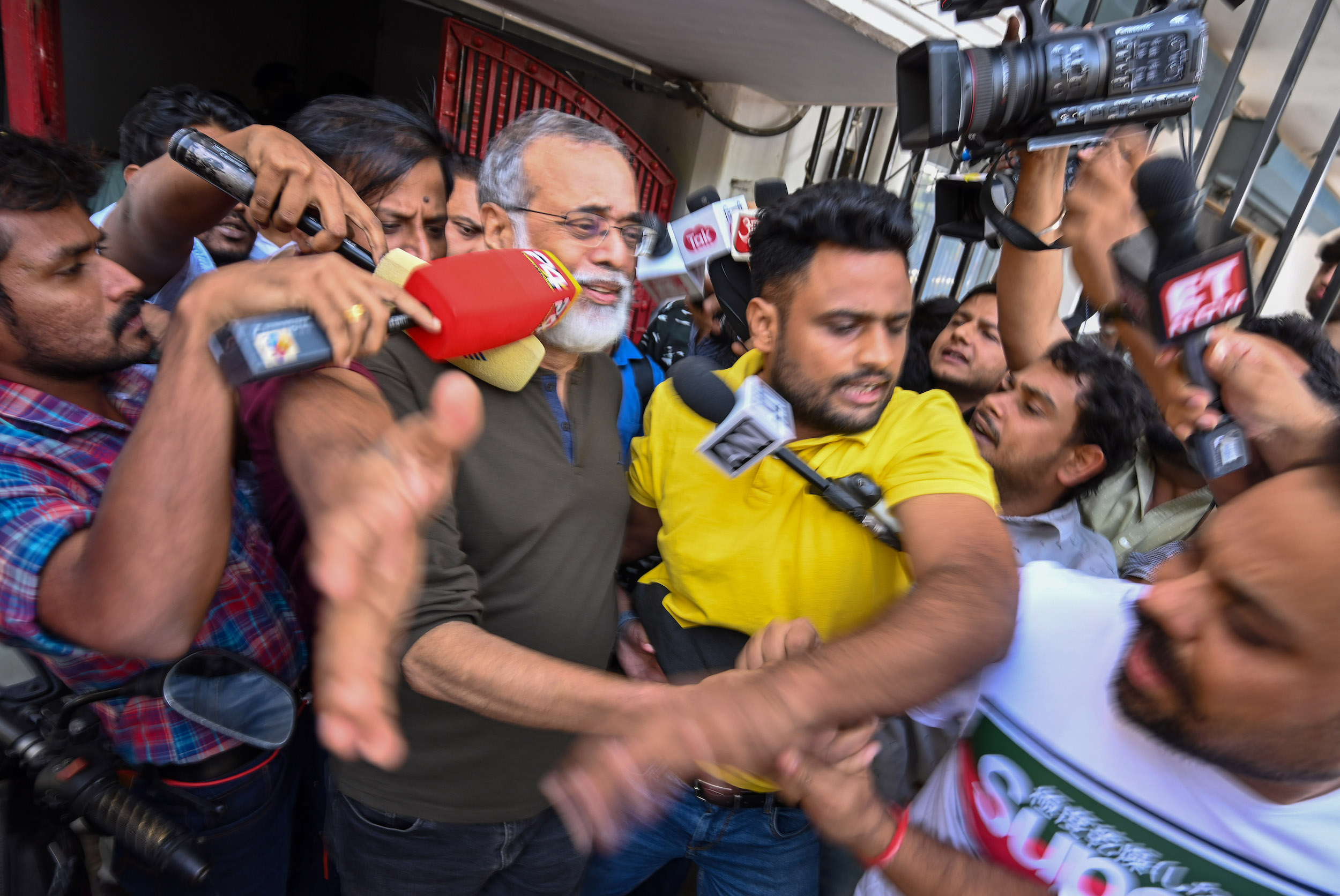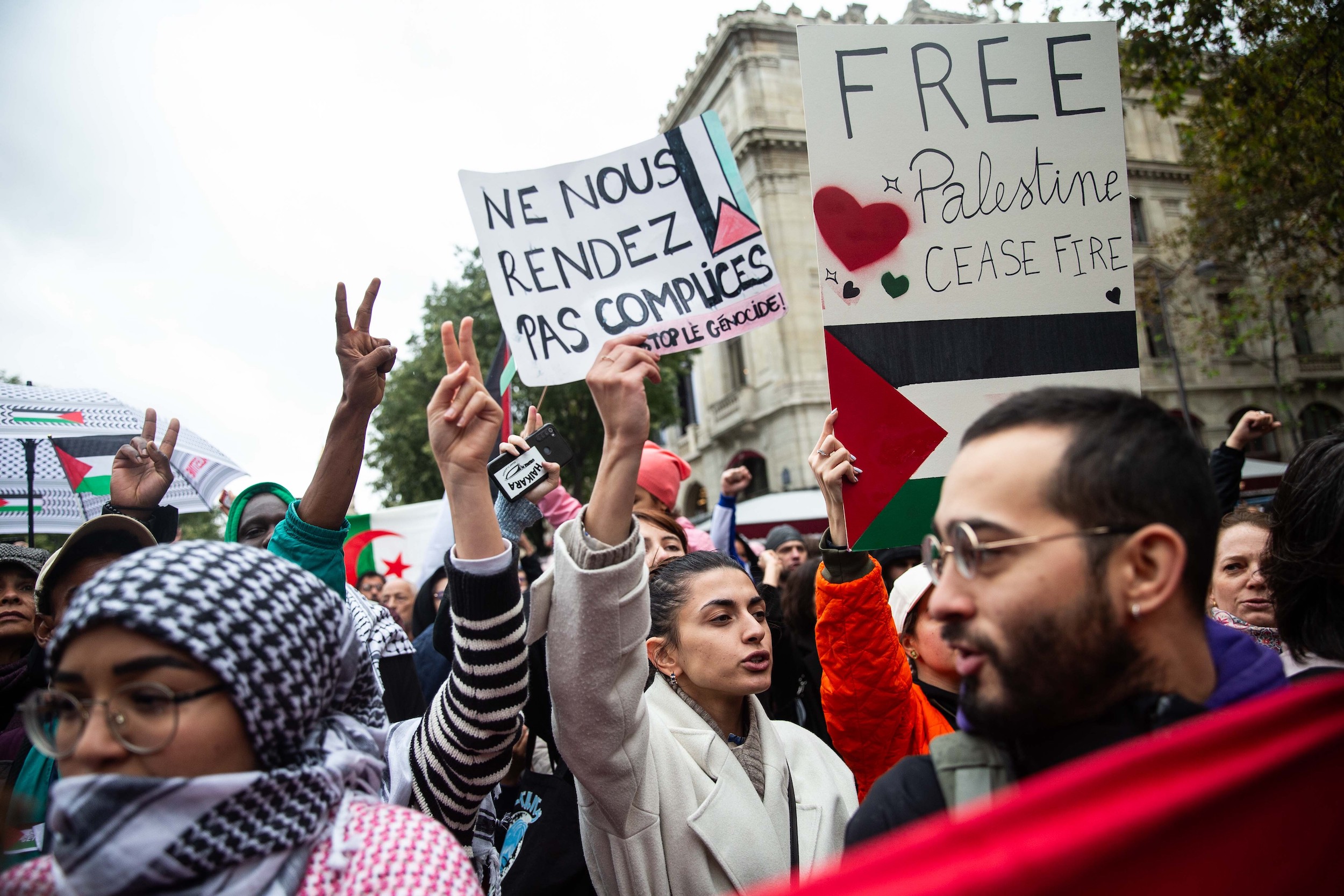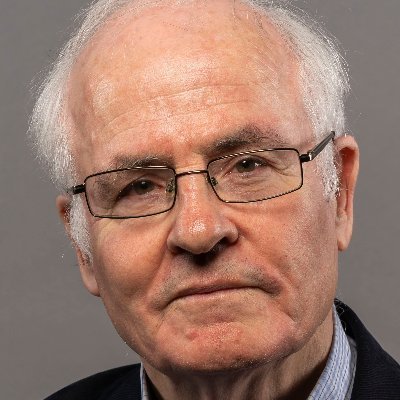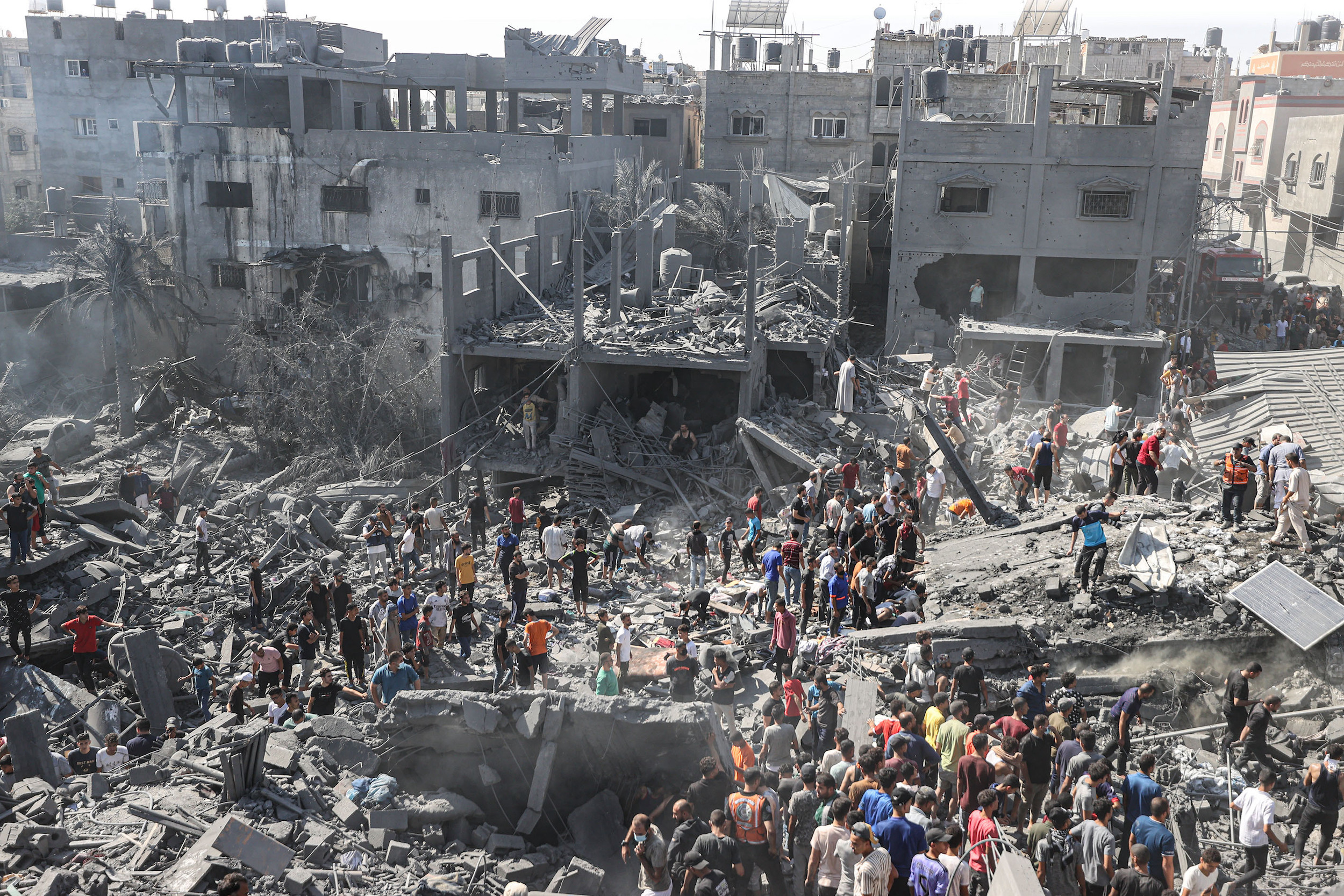"عندما يقدّم الصحفي الجيّد تقريرا عن الانتخابات في تركيا، فلا بدّ أن يكون وراء هذا التقرير سفر كثير، وعلى مدى سنين، إلى تركيا وإلى بلدان أخرى من المنطقة، ولا بدّ أن يكون وراءه مطالعة واسعة عن الشأن التركي من الكتب والمقالات والتحليلات، ولا بدّ أن يكون وراءه معرفة طيبة بطبيعة المزاج التركي، وبالأدب التركي، وبالتاريخ التركي، وبالاقتصاد التركي، وبكل أدب، وبكل تاريخ، وبكل اقتصاد" (1).
وأنا أتصفح السطور الأولى من كتاب "حجر الأرض"، تذكرت هذه الكلمات، للخبير اللغوي والإعلامي الأستاذ عارف حجاوي في مستهلّ كتابه "جولة في خريطة العالم السياسية".
أراد حجاوي أن يدرك الصحفيون أهمية أخذ السياق الثقافي والاقتصادي، والأبعاد المختلفة للحدث بعين الاعتبار أثناء تغطية الأخبار، فكل ذلك جزء من الموضوع، لأن بتر الخبر من سياقه تجن على الحقيقة، وجريمة في حق المتلقي، وضعف في مستوى المراسل.
كتاب حجر الأرض.. صراع الغزاة والحماة في أفغانستان، الذي كتبه الصحفي أحمد فال ولد الدين، موفد قناة الجزيرة لتغطية الخروج الأمريكي من الأرض الأفغانية بعد 20 عاما من الغزو، مثال على إيمان الصحفي بقداسة مهنته، وأهمية الدور الذي يقوم به.
جاء الكتاب في نحو مئتي صفحة موزعة على ثلاثة فصول، غطت أهم الجوانب ذات الصلة بمواجهة الشعب الأفغاني لهجمات الغزاة والمعتدين على مر العصور، واستند الكاتب في إعداده إلى معرفة عميقة بالتراث العربي والإسلامي، وبتاريخ الغزو البريطاني والسوفييتي لأفغانستان، وبالثقافة الغربية ومزاج الشعب الأمريكي، حيث كان شاهدا على أحداث الحادي عشر من سبتمبر/أيلول من داخل الولايات المتحدة.
ولم تكن رحلته لتغطية الخروج الأمريكي من أفغانستان، هي زيارته الأولى، فقد أخذه العمل الإعلامي قبل ذلك إلى هناك، وأجرى العديد من المقابلات مع القادة والفاعلين السياسيين على التراب الأفغاني.
يقول أحمد فال: "كنت أحس أنني أكتب الأحرف الأولى من تاريخ صحفي سيبقى، كما كنت أحسّ وأنا أجول بين مدن أفغانستان الإحساس الذي يساور كل مؤرخ، أو واع بالتاريخ في الأماكن ذات الإرث الحضاري، فليست جبال أفغانستان مكانا متواريا عن رياح التاريخ ...كانت بؤرة استقطاب لصناع الحضارات ومقوّضيها منذ الإسكندر الأكبر، والأكاسرة، وحجافل جنكيز خان، وظلت تلك البقعة ممرا أبديا للغزاة والتجار والفرسان..." (2).
المكان
كان السياق الجغرافي حاضرا في ذهن أحمد فال أيضا، فوجود أفغانستان على مفترق الطرق التجارية الرابطة بين حضارات الهند وشرق آسيا ووسطها والشرق الأوسط وأوروبا، وضعها في محور اهتمام الغزاة دائما، لكن نفس الموقع الذي كان سر "تعاستها" كان أيضا سر قوتها وتغلبها على الغزاة، بفضل طبيعتها الجبلية الوعرة، ومناخها شديد البرد في الشتاء، شديد الحر في الصيف، ونسيجها الاجتماعي متعدد الألسن والثقافات.
هذه الخلفية التاريخية والحضارية مهمة بالنسبة لأي صحفي خاصة وهو يغطي شأنا معقدا مثل أفغانستان. وهكذا، تناول الكتاب بشيء من التفصيل تاريخ أهم المدن في أطراف أفغانستان الأربعة، فكتب عن مدينة هراة في الغرب، ومزار شريف في الشمال، وقندهار وكابول في الجنوب والشرق، مشيرا إلى هزيمة المغول في قندهار بعدما محقوا الكثير من المدن في أفغانستان وغرب آسيا، والخلاف الأبدي بين قندهار والحاكم المركزي في كابل.
طالبان
تحت عنوان انبثاق حركة وميلاد زعيم، جاء الفصل الثاني من كتاب حجر الأرض، وهو الفصل الذي خصصه الكاتب للظروف التي اكتنفت تأسيس حركة طالبان، وكيف خرجت إلى النور كردة فعل على اختطاف واغتصاب فتاتين من طرف قائد إحدى المليشيات، لتبدأ الحركة بثلاثين رجلا جمعهم السعي إلى تحرير الفتاتين المغتصبَتين، وهو ما تم فعلا وانتهى بالانتقام من المجرم، لكن الحركة التي تأسست انتصارا للمرأة سيرتبط اسمها في الإعلام الغربي لاحقا بالتضييق على حريتها.
العمائم المظفّرة
جاء الفصل الأخير من الكتاب تحت عنوان: العمائم المظفّرة.. عودة طالبان، وبدأه ولد الدين باستدعاء جانب آخر من شخصيته، فاستهل هذا الفصل بأسلوب "الفلاش باك" ذلك الأسلوب الذي يعرف أحمد فال متى وكيف يستخدمه، فهو إلى جانب عمله الصحفي وخبرته بالتراث والثقافة الإسلامية ومقارنة الأديان، روائي مبدع، وكان لهذا الأسلوب دور في إضفاء مزيد من التشويق والمتعة المصحوبة بكم كبير من المعلومات التي جمعها الكاتب خلال وجوده في أفغانستان عبر عدد من اللقاءات والمقابلات التي أجراها أثناء تغطيته للخروج الأمريكي من هناك.
عالج هذا الفصل عودة طالبان إلى سدّة الحكم في أفغانستان، وما يحمله ذلك من تحديات للحركة، وتوجس عالمي من عودتها إلى السلطة، وخوف من تضييقها على الحريات والإمعان في تحييد المرأة عن المساهمة في إدارة الشأن العام.
كل هذه المعطيات إضافة للعديد من المواضيع التي اتسع لها الكتاب، وضاقت هذه المراجعة السريعة عن الإشارة إليها، مثّلت مرتكزا لعمل الصحفي أحمد فال ولد الدين، وهو يؤدي مهمته في نقل المعلومة من مصدرها إلى شاشة الجزيرة، ومنها إلى ملايين المشاهدين في مناطق مختلفة من العالم.
المتأمل لتقاريره التي أعدّها من هناك، يلاحظ استناده إلى معرفته بأبعاد القضية المتعددة، وسياقاتها المختلفة.
ففي تقرير له بعنوان: أفغانستان.. ما بين جيل عاصر طالبان وجيل لا يعرفها، تناول الموضوع من زاوية تاريخية، فبدأ بمقابلة مع شاب أفغاني يدعى حسيب الله لم يشهد الحكم الطالباني، حيث كان في عامه الثاني يوم دخل الأمريكان إلى كابل. هذا الشاب يمثّل غالبية الشعب الأفغاني اليوم، وينتمي إلى جيل تربّى في ظل شبكات التواصل الاجتماعي والثورة الرقمية، ويأمل أن تختلف طريقة طالبان في إدارة البلاد عن طريقتها يوم دخلت كابل عام 1996، وفي الجزء الثاني من التقرير حضر أحد الذين عايشوا تلك الحقبة، متحدثا عن ذكرياته وأمله في استعادة الأمن والاستقرار.
إن العمل الإعلامي لا يقتصر على نقل خبر جافّ دون العناية بأبعاده وتشعّباته، وإنما يجب على الصحفي أن يتجاوز ما يطفو على السطح من معلومات يمكن للجميع الوصول إليها، ويتجه إلى عمق القصة وجذورها التاريخية وسياقاتها الثقافية والنفسية والاجتماعية، وما يرتبط بها من عوامل اقتصادية وسياسية، ليقدم للمشاهد قصة صحفية متكاملة.
هذا ما أشار إليه عارف حجاوي في المقتبس الذي بدأنا به هذا المقال، وهو ما كان يدور في ذهن أحمد فال حين همّ بالسفر إلى أفغانستان.. حيث يقول في مقدمة كتابه حجر الأرض: "حاولت ألا أكون مثل كثير من الصحفيين الذين يعميهم الخبر اليومي الجاف المنبتّ عن جذوره التاريخية، وشروطه الحضارية، فلعل النظرة التاريخية المازجة بين اليومي والتاريخي، واللحظي والحضاري، تمنح المرء ثباتا في عالم متقلب، وتمده بفهم ليوميات الأخبار المتلاحقة..."
[1] عارف حجاوي، جولة في خريطة العالم السياسية، معهد الجزيرة للإعلام، ص: 8
[2] أحمد فال ولد الدين، حجر الأرض.. تاريخ الغزاة والحماة في أفغانستان، ص: 8
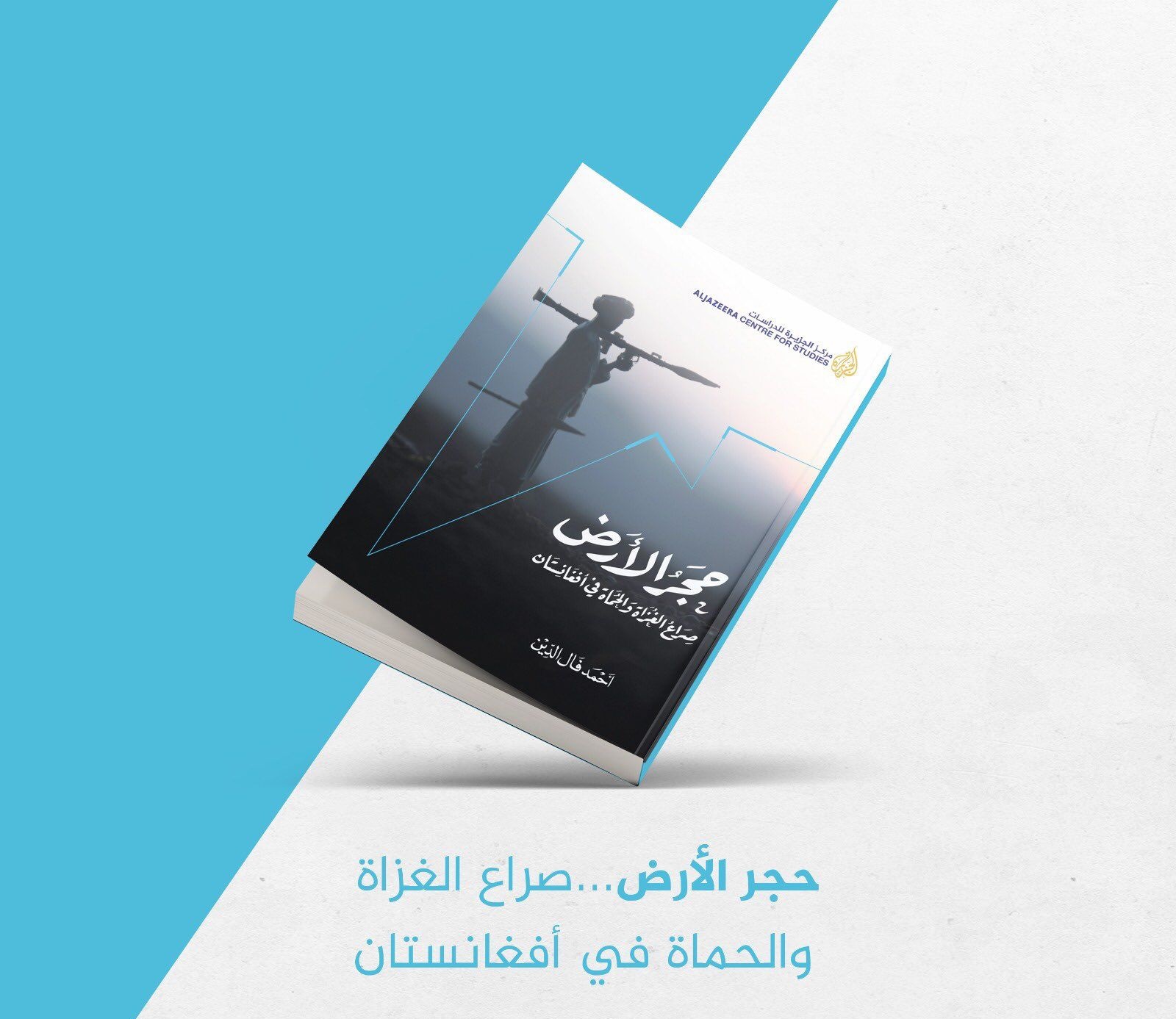
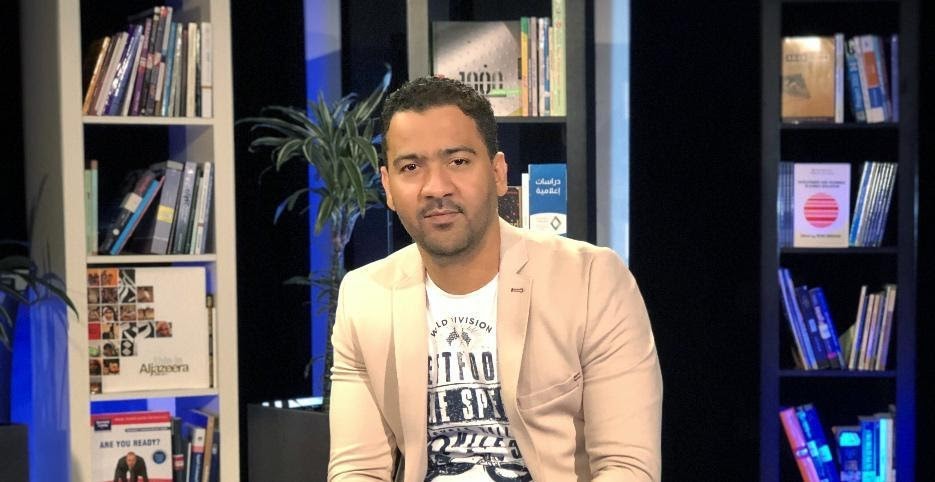


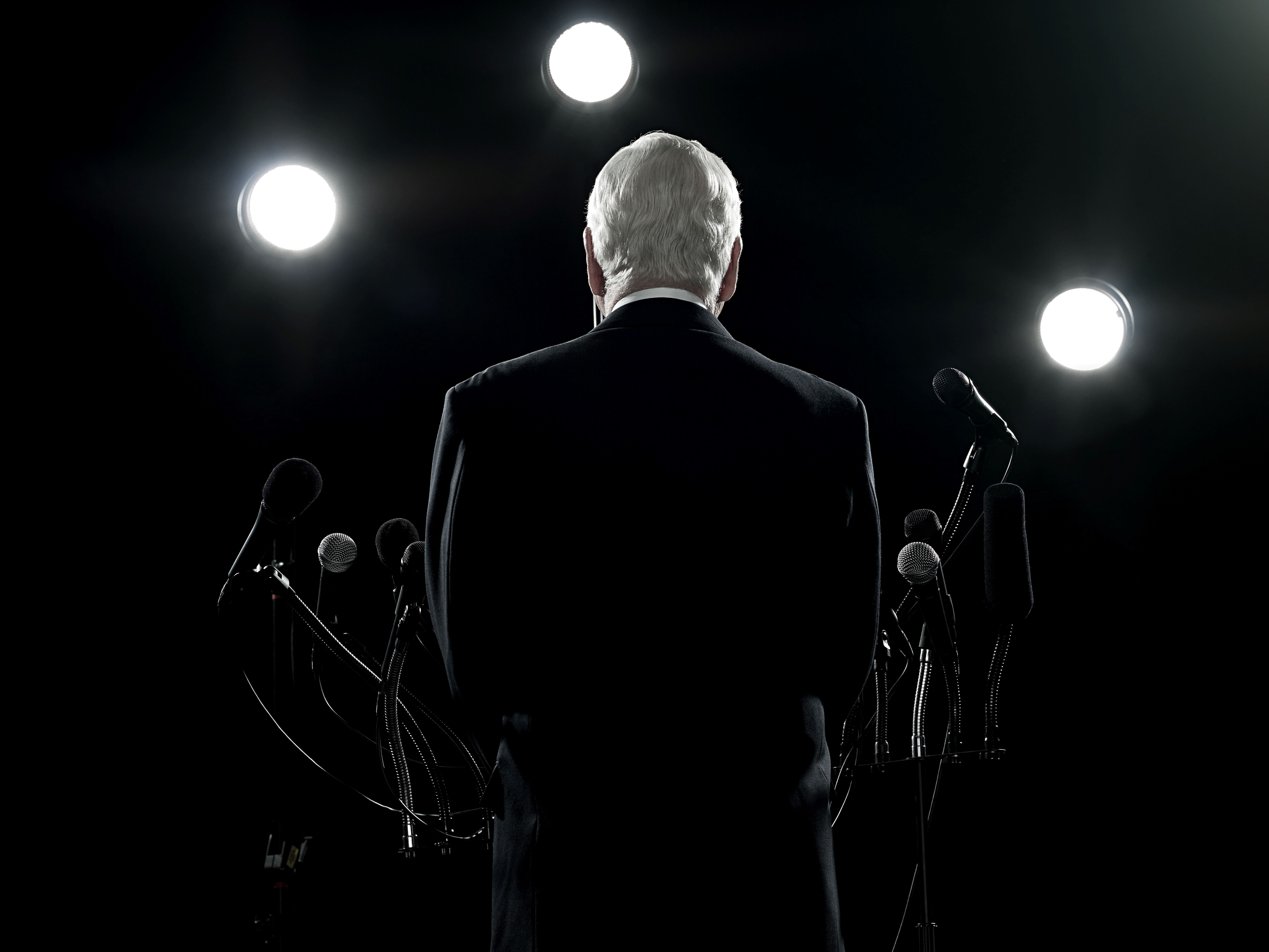



















![A demonstration against Israel's war on Gaza on Paulista Avenue in São Paulo on November 4, 2023, draws attention to the deaths of children while the media focuses on the war against terrorists. [Photo: Lina Bakr]](/sites/default/files/ajr/2024/Picture1.png)

